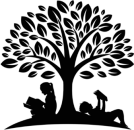- Lime Class Curriculum Overview (660.81KB)
- Beech Class Curriculum Overview (852.51KB)
- Maple Class Curriculum Overview (688.18KB)
- EYFS Curriculum Overview (576.69KB)
- Willow Class Curriculum Overview (1,016.83KB)
- Remote Learning Provision (577.16KB)
Little Hadham’s curriculum is designed with the whole-child, from Nursery to Year 6, at the heart of its vision and ethos. We want every child to be a happy, confident learner, who is motivated to learn, and to develop aspirations for their own future.
We have designed a curriculum that is broad, balanced, rigorous and enriched with a wide range of extra-curricular activities and opportunities. With this aim, we set the example to our children, create a culture of aspiration and “raise their eyes to the sky” by broadening their horizons and widening their experiences. We focus on ensuring that the children leave primary school with the numeracy and literacy skills required in order to enter secondary school as confident readers, writers, speakers and mathematicians. We challenge and support individual needs and abilities so that every child reaches their potential.
The cornerstones of our school are our values which run through every aspect of our school’s life. We teach them the values of kindness, respect, tolerance, resilience, fairness and co-operation so that they develop the content of character required to have good relationships and be positive citizens.
The Foundation Stage, Nursery and Reception Years
Early Years education is the foundation upon which children build the rest of their lives and is an education that encompasses all the learning; it is concerned with the physical, personal, social, emotional, creative and intellectual development of the individual child, with no one area standing in isolation from the others.
The Foundation Curriculum refers to children aged birth to five. In our setting, children in their Nursery or Reception year form part of the Birth to Five framework. This curriculum prepares pupils for the National Curriculum which begins formally in Year 1 and is taught through to the end of Year 6 and beyond into Secondary School.
Reception and Nursery children are given planned opportunities to develop in seven areas of learning, as outlined in the QCA DfE Curriculum Guidance for the Foundation Stage:
- Physical Development
- Communication
- Personal, Social & Emotional Development
- Understanding of the World
- Mathematical Development
- Reading and Writing
- Expressive Arts & Design
Activities will be planned and presented that will form the foundations of learning at the statutory school age. Play that is purposeful has a very important place in the education of young children; it provides one of the best learning contexts available.
The outdoor curriculum is an essential part of their learning, therefore an extension of the indoor curriculum. Children will need to come to school with suitable outdoor clothing. Welly trollies are provided to store suitable footwear at school on a continual basis.
Each child is encouraged to reach their full potential by achieving, if appropriate, and exceeding the early learning goals in each of the seven areas above.
The National Curriculum Years 1 to 6
All children from Years 1 to 6 follow the National Curriculum Areas of Study for Key Stages 1 and 2 as set out in the 2002 Education Act. Throughout these years’ children are assessed in accordance with government guidelines and requirements, which are currently under review. Subjects are taught in accordance with the requirements of the National Curriculum 2014, through a topic based approached.
- Core subjects: English, Mathematics and Science
- Foundation subjects: History, Geography, Art, Design and Technology, Music, Physical Education, Information and Communication Technology
- Modern Foreign Languages: French from year three onwards.
- Personal, Social, Health and Economics Wellbeing: has planned lessons as well as encompasses the whole curriculum.
- Religious Education is taught following the guidelines of the Hertfordshire Agreed Syllabus.

